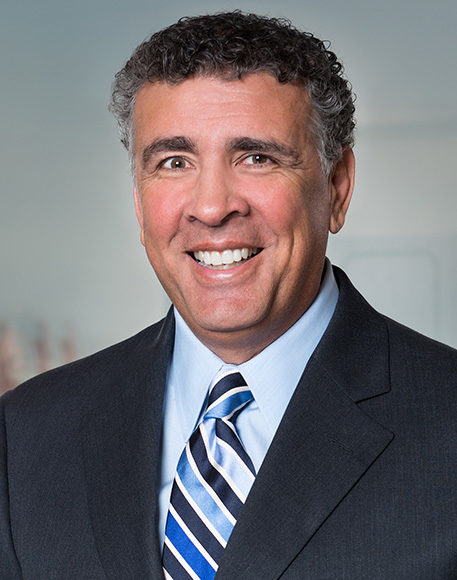Can a Patient Be Kicked Out of a Nursing Home?
 Facing the possibility of a loved one being discharged from a nursing home can be a distressing experience. At Garcia & Coman, our nursing home abuse attorneys understand the emotional and legal challenges that such situations can create. The question of whether a patient can be legally evicted from a nursing home is complex, involving federal laws, residents’ rights, and the responsibilities of care facilities.
Facing the possibility of a loved one being discharged from a nursing home can be a distressing experience. At Garcia & Coman, our nursing home abuse attorneys understand the emotional and legal challenges that such situations can create. The question of whether a patient can be legally evicted from a nursing home is complex, involving federal laws, residents’ rights, and the responsibilities of care facilities.
The Nursing Home Reform Act (NHRA) of 1987 provides the foundational legal protections for nursing home residents in the United States. This federal law, part of the Omnibus Budget Reconciliation Act, establishes specific criteria under which a nursing home can discharge or transfer a resident. These criteria are designed to ensure that residents are not unfairly removed from a facility, protecting their rights to receive continuous care.
According to the NHRA, a nursing home can only discharge or transfer a resident under the following conditions:
- Inadequate care: If the facility can no longer meet the resident’s needs due to a lack of resources or capacity, a transfer or discharge may be necessary.
- The resident’s health has improved: If a resident’s health improves to the point where they no longer need the level of care provided by the nursing home, they may be discharged.
- The resident’s presence endangers the safety of others: If a resident poses a threat to the safety of other residents or staff, the facility may consider discharge.
- The resident’s presence endangers the health of others: This criterion is invoked in cases of contagious diseases where isolation within the facility is not feasible.
- The resident has failed to pay: Non-payment of care fees can lead to discharge, provided the resident or their responsible party has received appropriate notice and the opportunity to rectify the situation.
- The facility is closing: If the nursing home is shutting down, residents may be discharged or transferred to another facility.
It is important to note that even when these conditions are met, the nursing home must follow strict protocols before discharging or transferring a resident. These protocols include providing adequate notice, offering a discharge plan, and ensuring that the transfer or discharge is safe and appropriate.
Involuntary discharge
Despite the legal protections in place, involuntary discharges from nursing homes seem to be increasing, which is a troubling trend for residents and their families. Involuntary discharge can occur for various reasons, some of which may not align with the legal criteria outlined in the NHRA.
- Financial motives: In some cases, nursing homes may attempt to discharge residents who rely on Medicaid, seeking to replace them with private-pay residents who bring in more revenue. This practice, while financially motivated, is illegal and violates the rights of the resident.
- Challenging behavior: Residents with dementia or other conditions that result in challenging behavior may be at risk of involuntary discharge. While safety concerns are legitimate, these discharges often occur without adequate consideration of alternative solutions or appropriate care plans.
- Medical complexity: As residents age, their medical needs often become more complicated. Some nursing homes may seek to discharge residents whose care requires more resources than the facility is willing or able to provide, even if the facility is legally obligated to meet those needs.
What rights do nursing home residents have?
Nursing home residents have the right to appeal a discharge or transfer. This appeal process is crucial for ensuring that the discharge is lawful and serves the resident’s best interests. The nursing home must provide written notice that includes:
- The reason for the discharge
- The effective date
- The resident’s right to appeal
Typically, the notice must be given at least 30 days before the proposed discharge or transfer. However, in emergencies where the resident’s health or safety is at immediate risk, the facility may provide a shorter notice period but must still follow legal requirements.
Residents are also entitled to a safe and orderly transfer. This means the nursing home must assist in finding a suitable alternative placement and ensure that the transfer process does not endanger the resident’s health or well-being. Discharging a resident to an unsafe location, such as a homeless shelter or emergency room, is not permissible.
How our nursing home abuse attorneys can help
At Garcia & Coman, we advocate for residents’ rights and ensure that your loved one is not unlawfully discharged or transferred. When a family comes to us with concerns about a potential discharge, our first step is to review the situation in detail. This involves examining the nursing home’s reasons for the discharge, the notice provided, and the care plan offered.
In many cases, we find that the nursing home’s actions do not align with the legal requirements. For example, the facility may claim that it can no longer meet the resident’s needs, yet fail to provide evidence of this or explore alternative solutions. In such instances, we work with the family to appeal the discharge, presenting a strong case to demonstrate that the resident’s rights have been violated.
The appeal process typically involves a hearing before an administrative law judge. During the hearing, both sides present their arguments, and the judge determines whether the discharge is lawful. If the judge rules in favor of the resident, the nursing home must continue providing care or find a suitable alternative placement.
In addition to handling appeals, we also assist families in filing complaints with state regulatory agencies. These agencies are responsible for overseeing nursing homes and ensuring compliance with federal and state laws. A complaint can trigger an investigation into the nursing home’s practices and may result in penalties or other corrective actions if the facility is found to be in violation.
Preventing unlawful discharges
While legal recourse is available for residents who have been unlawfully discharged, prevention is always preferable. Families can take several steps to protect their loved ones from involuntary discharge:
- Understand the resident’s rights: Knowledge is power. Families should familiarize themselves with the legal rights of nursing home residents, including the criteria for discharge and the appeal process.
- Maintain open communication: Regular communication with the nursing home staff can help families stay informed about their loved one’s care and any potential issues that could lead to discharge.
- Document everything: Keeping detailed records of all interactions with the nursing home, including meetings, phone calls, and written correspondence, can be invaluable if a dispute arises.
- Seek legal advice early: If there are signs that a discharge may be imminent, consulting with our nursing home abuse attorneys early in the process can help prevent unlawful actions and ensure that the resident’s rights are protected.
- Involve state agencies: If a family suspects that a discharge is unlawful, they should not hesitate to file a complaint with their state’s long-term care ombudsman or other regulatory agencies. These agencies can provide support and intervene on behalf of the resident.
If you or a loved one is facing the threat of discharge from a nursing home, it’s vital to act quickly. Protecting the rights and well-being of nursing home residents requires experienced legal guidance. Contact the knowledgeable nursing home abuse attorneys at Garcia & Coman today to ensure that your loved one is not unfairly removed from their care facility. With the right legal support, you can fight back against unlawful discharges and secure the care your loved one deserves. Don’t wait—take action now to safeguard their future. Call our nursing home lawyers or fill out our contact form to schedule a free consultation today. As a national firm, our offices are in Los Angeles, Phoenix, Long Beach, Louisville, and New Orleans.

Stephen M. Garcia represents victims of elder and nursing home abuse and is known as one of the leading civil litigators in the country. He is Senior Partner at Garcia & Coman, where the firm’s practice is focused on elder abuse, nursing home abuse, and wrongful death of the elderly.
Find out more about Stephen M. Garcia

